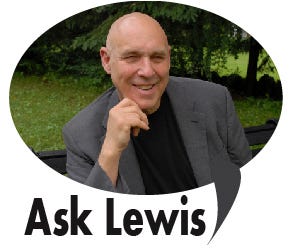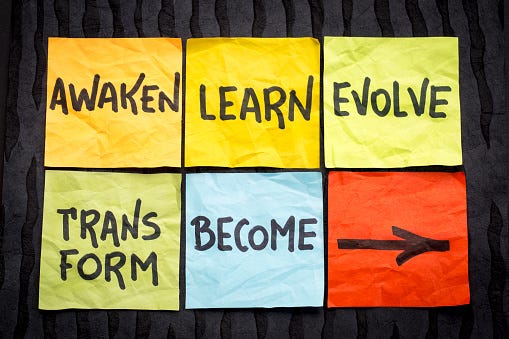The Best Winning Strategies: Bounded Rationality
Using critical thinking, deductive reasoning, and common sense to make the best decisions
“This newsletter serves a demographic of highly intelligent readers, and deep thinkers with a passion for ideas, critical thinking, strategic game theory, and a desire to understand the world around them. Readers of my posts are usually tired of being patronized elsewhere by fact-less, opinionated know-nothings, misinformation, conspiracy theories, and fake news.
“Knowledge is power, wisdom brings meaning, contentment, and happiness!”
———————————————————
———————————————————
On a personal note: Please excuse grammatical errors, typos, repetition, and any general nonsense, and such in this post. I am getting a bit older now, and I have about 20,000 pages of information that must get published before I leave the mortal coil. I simply write and publish more than my humble editors are able to correct. If you find enough errors you are welcome to contact me about being an editor of my work.
Thanks for sharing this newsletter with your friends and associates - Join us for daily tips on personal development at our free Self-Improvement for Beginners Group and Forum
Click Below or cut and paste the URL to Join
https://www.facebook.com/groups/455029215769173
———————————————————
A 4 - Minute Read
Q. Lewis, what is bounded rationality and why is it important in game theory and in general decision-making?
——————————————————————————————————————
Learn more about game theory by clicking on the article below …
A. Bounded rationality, helps us to understand rational and irrational behavior in decision-making. In the end, this tool helps us to make the best available choices even if they are not perfect choices. A skilled game theorist or any strategist for that matter needs evidence-based facts whenever possible in order to make effective decisions, yet these facts are not always available.
Let’s go a bit deeper here…
A core idea in HAGT (Harrison’s Applied Game Theory), traditional game theory, and in general decision-making, is that the rationality of individuals is limited by four essential factors:
the information they have,
the cognitive limitations of their minds (re: cognitive biases and logical fallacies)
the finite amount of time they have to make a decision.
the suitability of the surrounding environment to support that decision
Bounded rationality is important because much of game theory and decision science is based on the idea that agents and competitors of these agents create rational decisions and strategies. The fact is that rationality is limited when individuals make decisions. After all, human beings are not all-knowing and must deal with the limitations of the mind, which include the influences of unresolved early childhood traumas (see inner child work), tendency to embrace cognitive biases, logical fallacies, for various reasons. We also have limbic systems (the “lizard brain”) that conflicts with the reasoning that goes on in the pre-frontal cortex. Therefore, we need to develop our cognitive faculties, but they shouldn’t be expected to be perfect; which is also why we need to interact with other critical and rational thinkers (the dialectic intercourse in society). Our thoughts aren’t perfect and need to be tested almost constantly.
We must be rational but also realize that we cannot totally bank on everything we reason.
No matter how intelligent a person is, when making decisions their rationality is limited by the available information, the tractability of the decision problem, the cognitive limitations of their minds, and the time available to make the decision.
The wise strategist is seldom concerned with making optimal solutions. Usually, they must accept that the best they can hope for is a satisfactory solution.
Herbert A. Simon, a Nobel Prize Winner, proposed bounded rationality as an alternative basis for the mathematical modeling of decision-making, as used in economics, political science, and related disciplines. It complements "rationality as optimization" rather than "rationality as perfection”. With this way of addressing a problem, decision-making is a fully rational process of finding an optimal choice given the information available.
Simon used the analogy of a pair of scissors, where one blade represents "cognitive limitations" (critical thinking skills) of humans and the other the "structures of the environment", to illustrate how we compensate for limited resources by exploiting known structural regularity (stable patterns) in the surrounding environment.
The Takeaway
Some models of human behavior in the social sciences assume that humans can be reasonably approximated or described as "rational" entities (research rational choice theory, or Downs Political Agency Models for more on this).
Many economic models assume that people are on average rational, and can in large enough quantities be approximated to act according to their preferences. The concept of bounded rationality revises this assumption to account for the fact that perfectly rational decisions are often not feasible in practice because of time limitations and the inability to access essential resources (what advanced game theorists call intractability of natural decision problems and the finite computational resources available for making those decisions).
——————————————————————————————————————
Join our game theory support group on Facebook by clicking on the game theory logo below…
——————————————————————————————————————
Also, check out our new Mini Podcasts - Here is a sample - Click right below….
I often use gamer psychology and patterns of play as an educational tool for people interested in learning about HAGT (Harrison’s Applied Game Theory, and Life Strategies).
Click on the chessboard below to learn more about my Life Strategies Course and Mentoring Method
I wrote an article on game theory and logical thinking for my students. See below
Here is a short video interview with Lewis Harrison the author of this article about the basics of applied game theory. The interviewer is Jim Selman, one of the most influential American Leadership Gurus of the last half-century.
—————————————————
Author: Lewis is a writer, teacher, and master results-oriented life coach. He is the author of over twenty books, numerous self-improvement, and personal development courses, and is the former host of a talk show on NPR Affiliated WIOX91.3 FM. He can be contacted at LewisCoaches@gmail.com
—————————————————
If you want to live a struggle-free life, filled with knowledge and wisdom, please consider signing up for our course Winning the Game of Life: Lewis Harrison’s Life Strategies Playbook Method from A-Z.
Click on the button just below or copy and paste the link to learn more about the course …
——————————————————
None of us can progress alone, without some skilled guidance. Are you looking for a mentor or a compassionate, results-oriented life coach? This would be a great gift to give yourself.
I’d love to work with you and help you to become more effective, efficient, productive, self-aware, and create your best, most meaningful, and purpose-filled life.
Let's schedule a 15-minute interview to determine how I can help you create a customized and personalized program for creating your best life. Email me at LewisCoaches@gmail.com
Lewis
Click on the graphic below to learn more about the Life Strategies Course

















